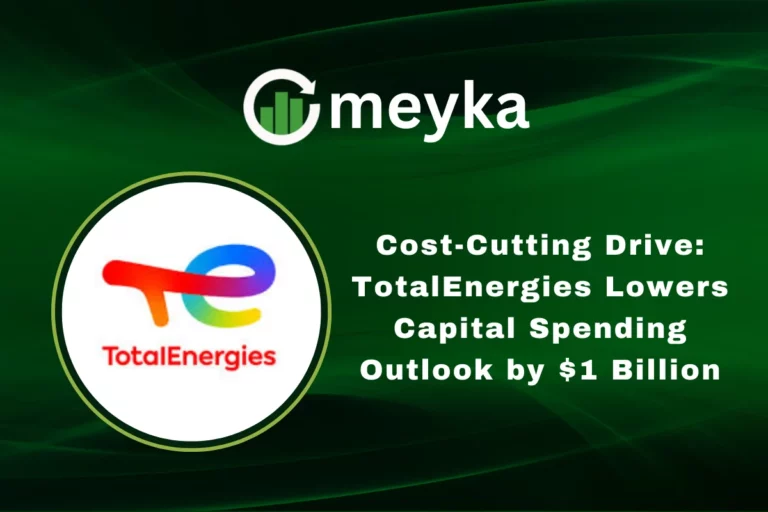Yes Bank Shares Jump 5% After RBI Approval, Should You Buy Now?
On Monday, Yes Bank shares jumped by about 5 percent, reaching over ₹20 per share. The big reason? The RBI has cleared Japan’s Sumitomo Mitsui Banking Corporation (SMBC) to acquire close to 25% of Yes Bank’s paid-up share capital along with voting rights.
That’s a big deal because SMBC is not just any investor; it’s a global banking giant. Its entry brings fresh capital and stronger confidence in Yes Bank’s future.
We want to talk about what this means for everyday investors. We’ll guide you through what happened, why the stock reacted, and whether now might be a smart time to think about buying, or if you should wait and watch.
Background on Yes Bank
We remember the turbulent days of early 2020. Yes Bank faced a severe crisis and went under a moratorium. The RBI had to step in. A consortium of banks, led by SBI, helped rescue the bank. That intervention started a slow rebuild. Today, Yes Bank is working to regain trust and rebuild its foundation.
What Triggered the 5% Jump?
The RBI’s green light for SMBC’s stake acquisition sparked the jump. SMBC had already announced plans in May 2025 to buy 20%, 13.19% from SBI, and 6.81% from seven other banks. The nod will remain effective for one year starting August 22, 2025. SMBC’s investment adds fresh capital and strengthens investor confidence in Yes Bank’s recovery.
Yes Bank’s Current Financial Performance
The bank’s first-quarter results for FY 2025–26 show solid gains. Revenue rose to ₹9,429.17 crore, up about 4.8% year-on-year. Net profit climbed to ₹808.65 crore, reflecting a year-on-year growth of about 57%. Another report showed profit at ₹808.70 crore, with revenue of ₹9,429.17 crore and EBITDA of ₹6,319.60 crore. Gross NPAs dropped to 1.6%, the lowest in recent times, while PAT rose 59.4%, Yes Bank’s strongest five-quarter performance. These numbers show that the bank is slowly healing from past wounds.
Technical Analysis of Yes Bank Shares
Technically, Yes Bank shares have been down about 20% over the past year. Yet, they’ve gained nearly 10% in six months. The stock found support near ₹18 and now faces resistance around ₹21. If momentum lasts, it could rise further toward ₹23. Indicators like RSI are neutral; MACD remains slightly negative. This shows cautious optimism, with watchfulness on volumes and trends.
Broader Market Context
This move fits a broader pattern: India is opening its banking sector to foreign players. The SMBC approval is part of a gradual easing of rules on foreign ownership. Analysts say such steps bring much-needed capital and global expertise into India’s financial system. This trend may reshape the banking and fintech landscape in India.
Risks to Consider Before Buying
There are still risks:
- Yes Bank’s stock is volatile. Gains could reverse quickly.
- SMBC is not a promoter. Its influence over strategy may be limited.
- The deal still needs approval from shareholders and the Competition Commission of India.
- The bank still faces legacy challenges such as NPAs and restructuring.
- Competition from stronger private banks and macroeconomic shifts could also pressure performance.
Future Outlook for Yes Bank
We see room for hope. SMBC’s investment gives Yes Bank a stronger capital base, better governance, and global credibility. With the bank’s improving metrics, this can pave the way for future growth. However, success hinges on timely execution, NPA recovery, and sustained financial discipline. The RBI’s clearance marks an important milestone, though it is not the final step.
Conclusion
We see a mixed bag. Yes Bank has turned a corner with SMBC’s backing and better quarterly results. The stock may offer short-term gains if momentum holds. But structural risks remain. Long-term rewards are possible, but only for those ready to watch closely and accept potential volatility. In short, there may be value, but it is not without caution.
FAQS:
Yes Bank is showing signs of recovery. Profits are rising, bad loans are falling, and new investors bring strength. A full comeback needs time, but progress looks steady.
Japan’s Sumitomo Mitsui Banking Corporation (SMBC) is buying a big stake in Yes Bank. RBI gave the green light for its proposal to acquire as much as 24.99% of the bank’s equity shares.
Yes Bank’s biggest stakeholder is the State Bank of India (SBI). It led the rescue in 2020 and still holds the biggest stake among all shareholders.
Disclaimer:
This content is for informational purposes only and is not financial advice. Always conduct your research.






